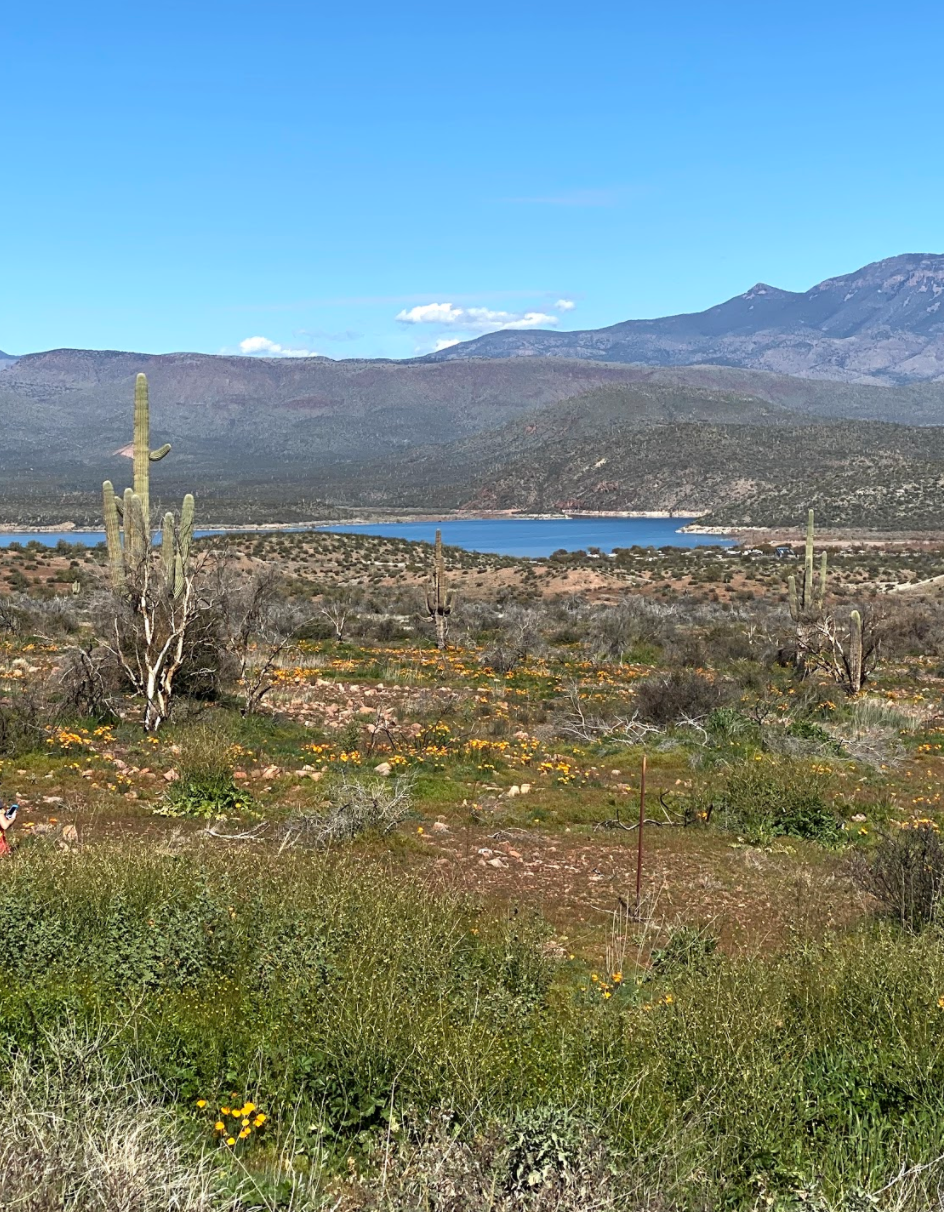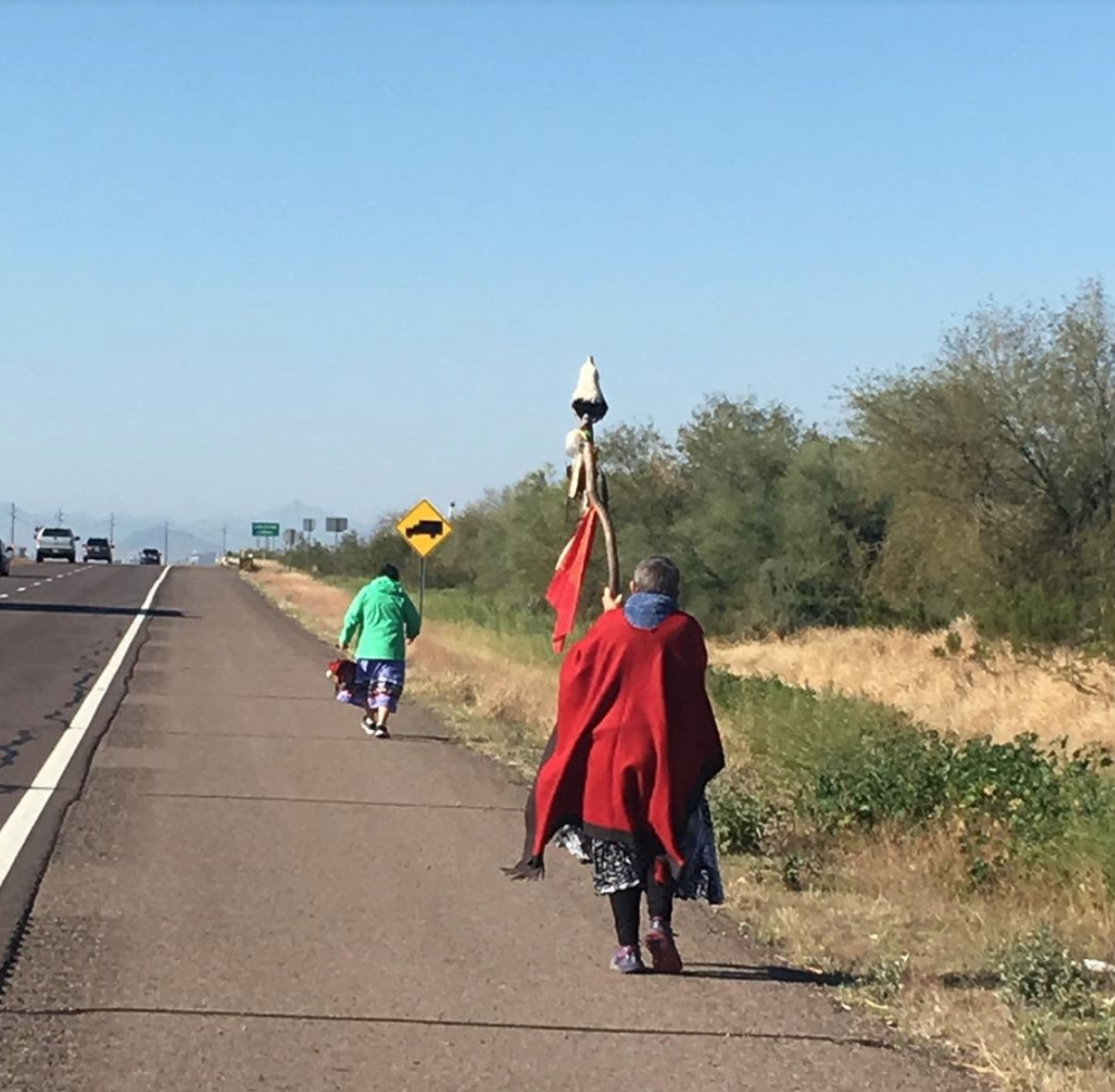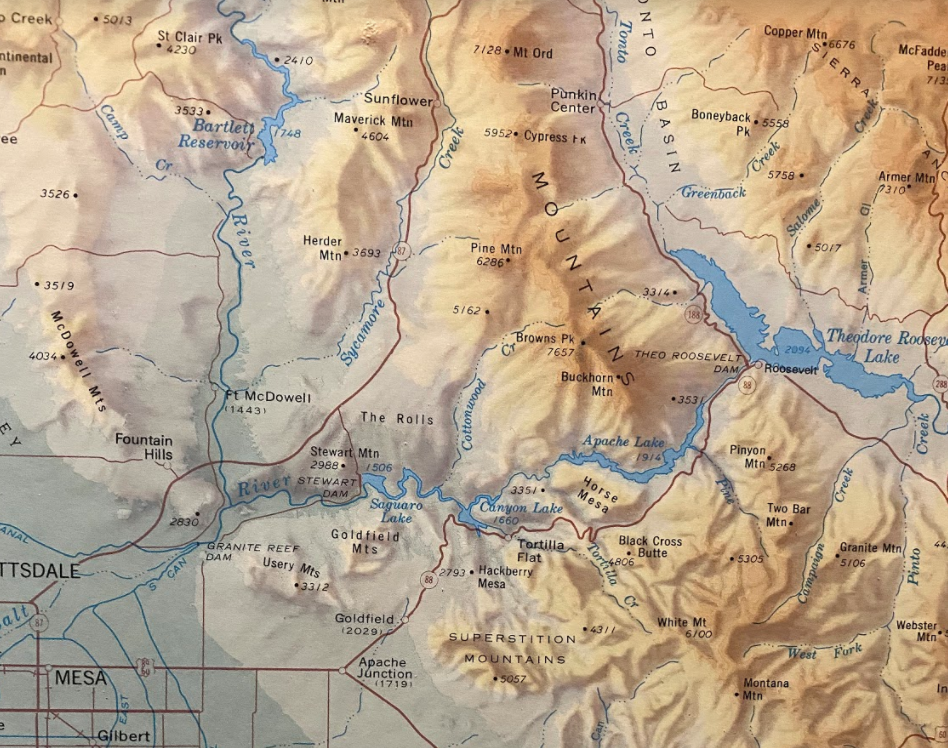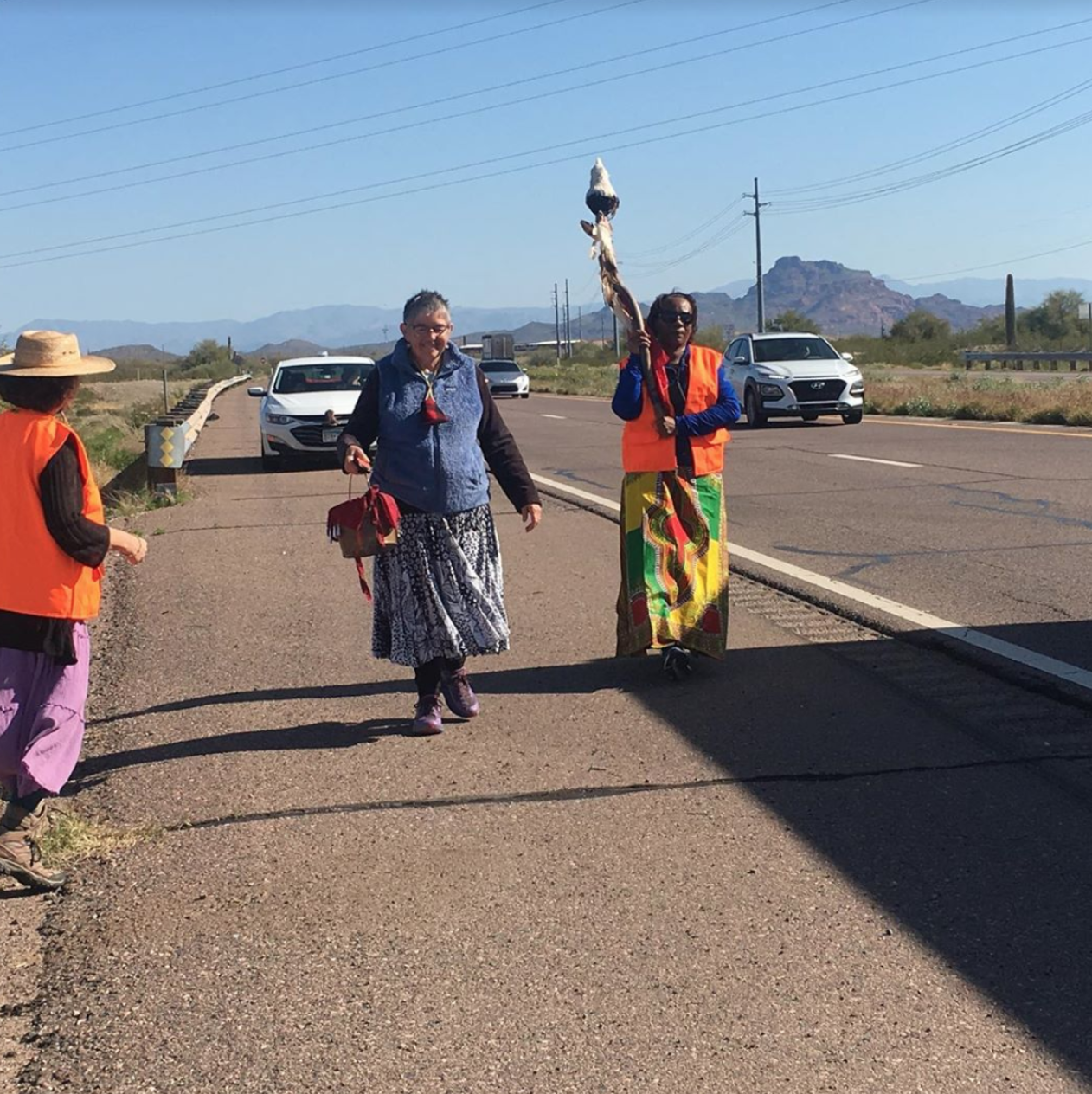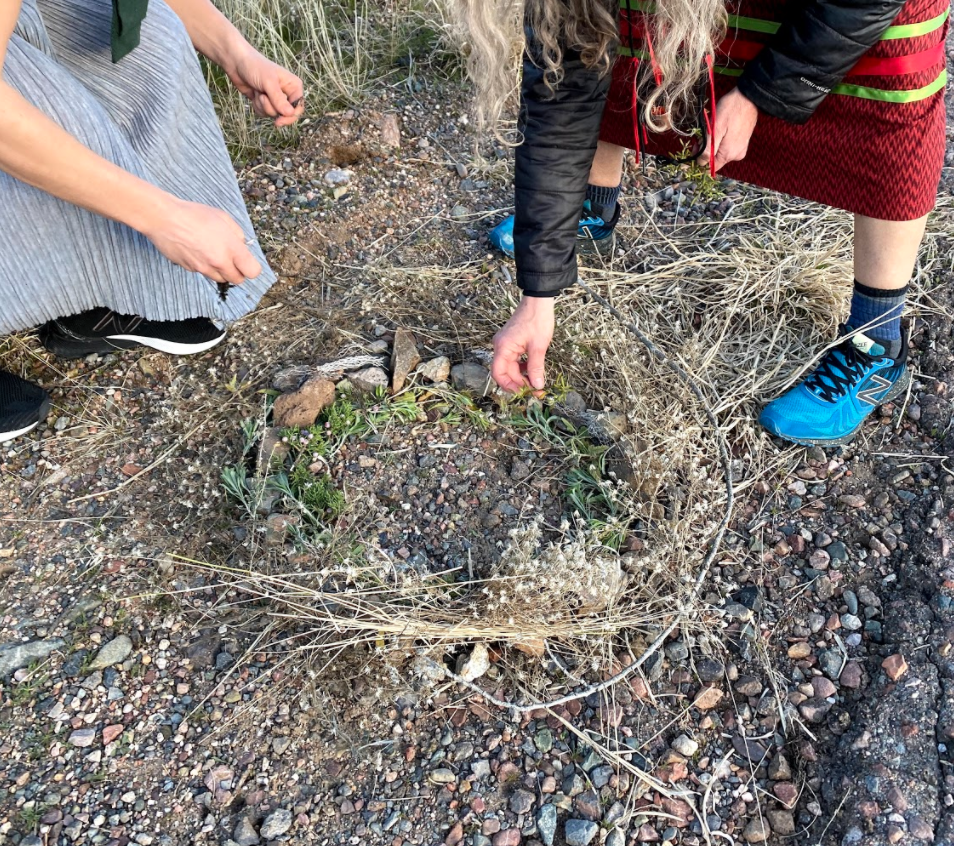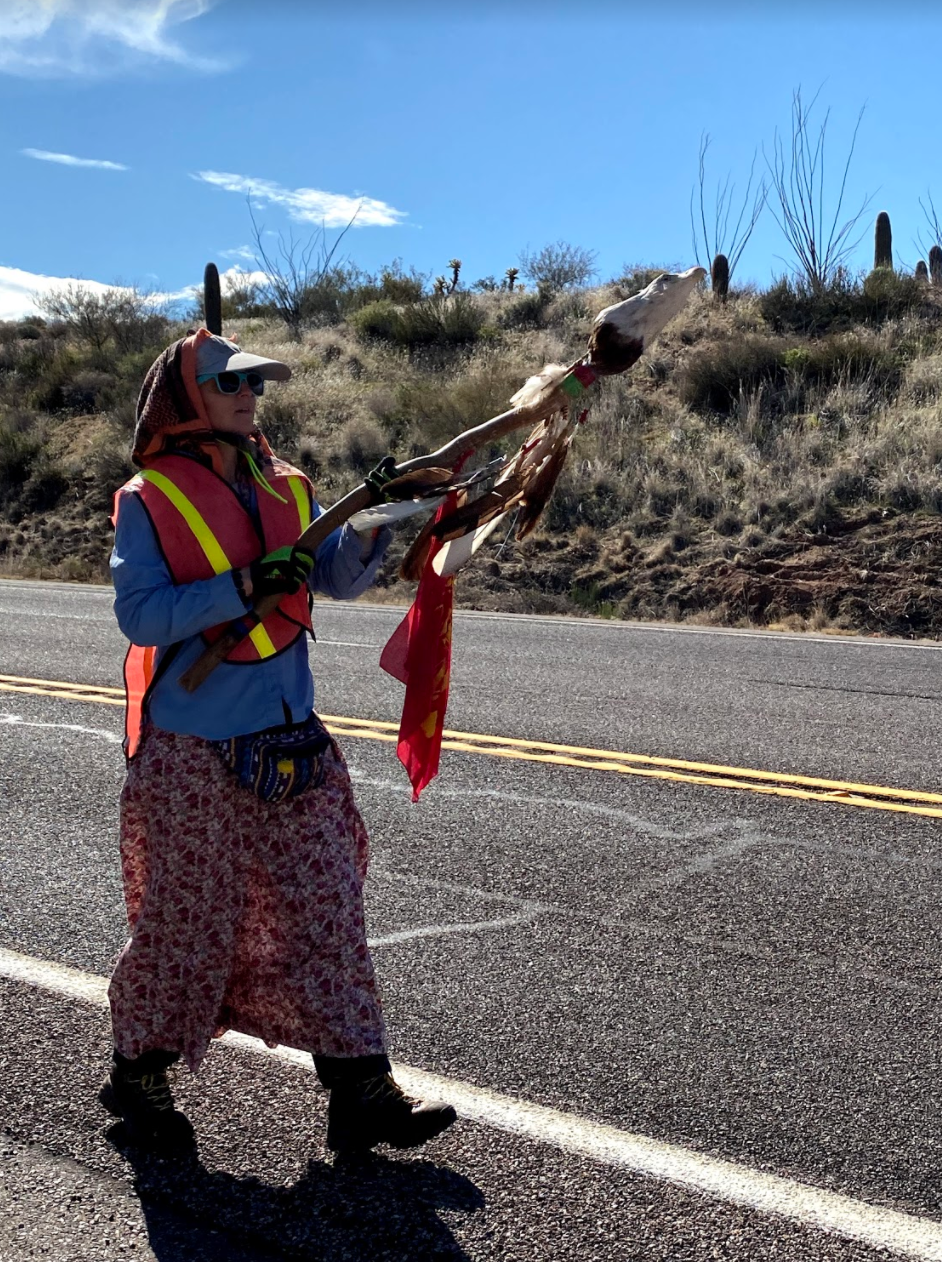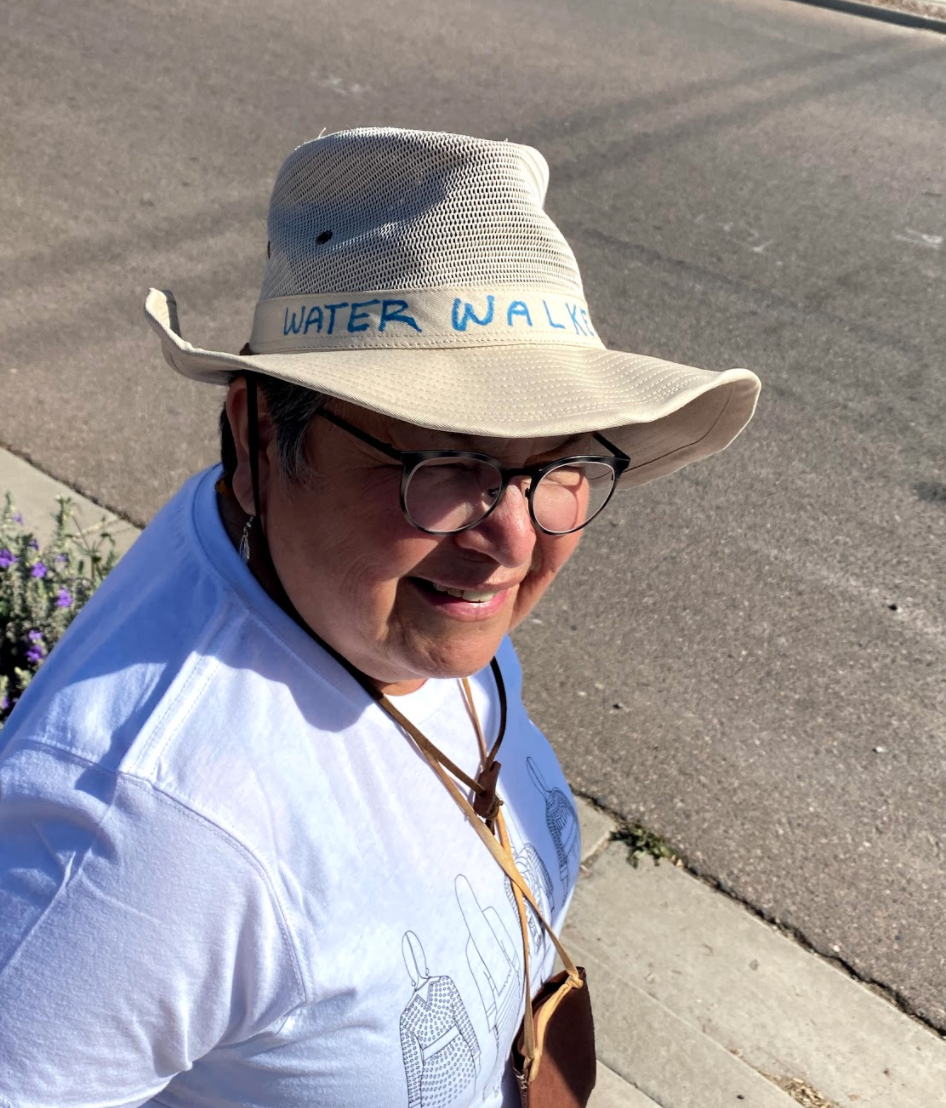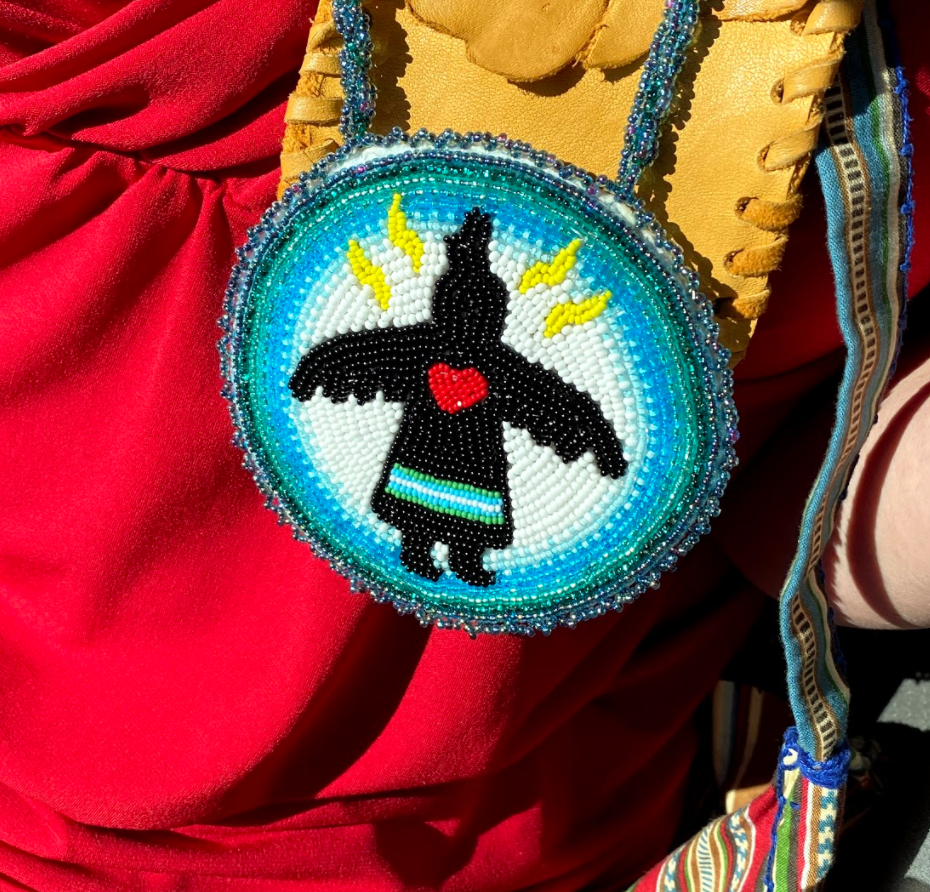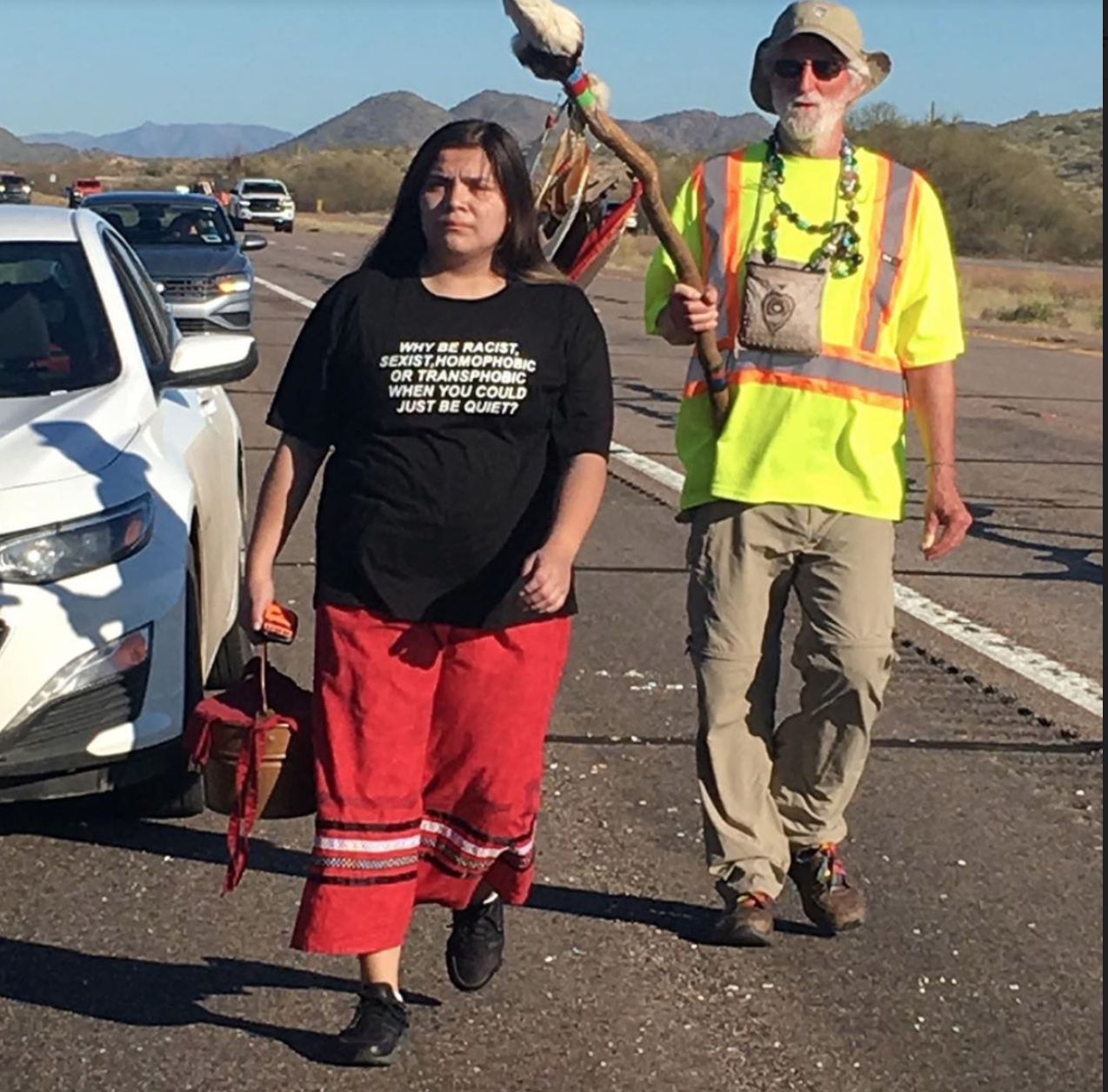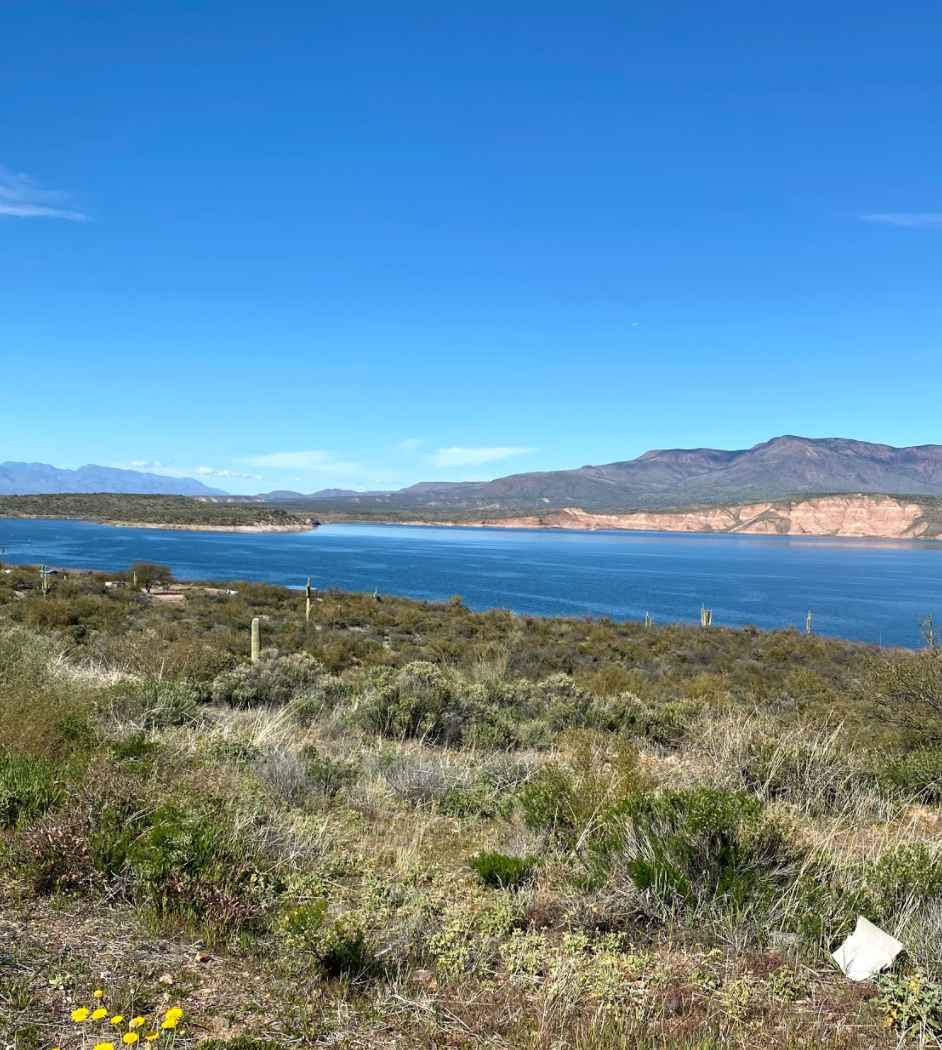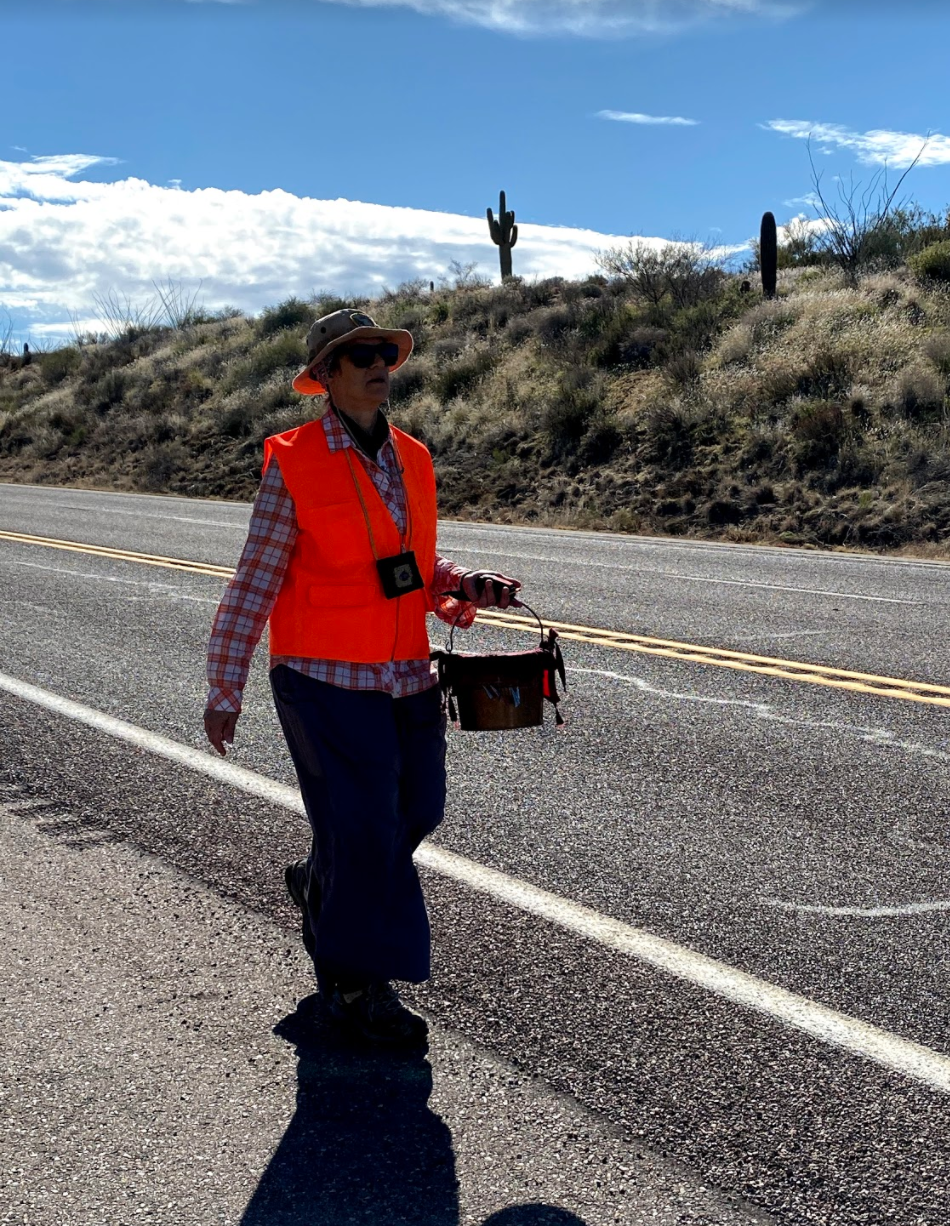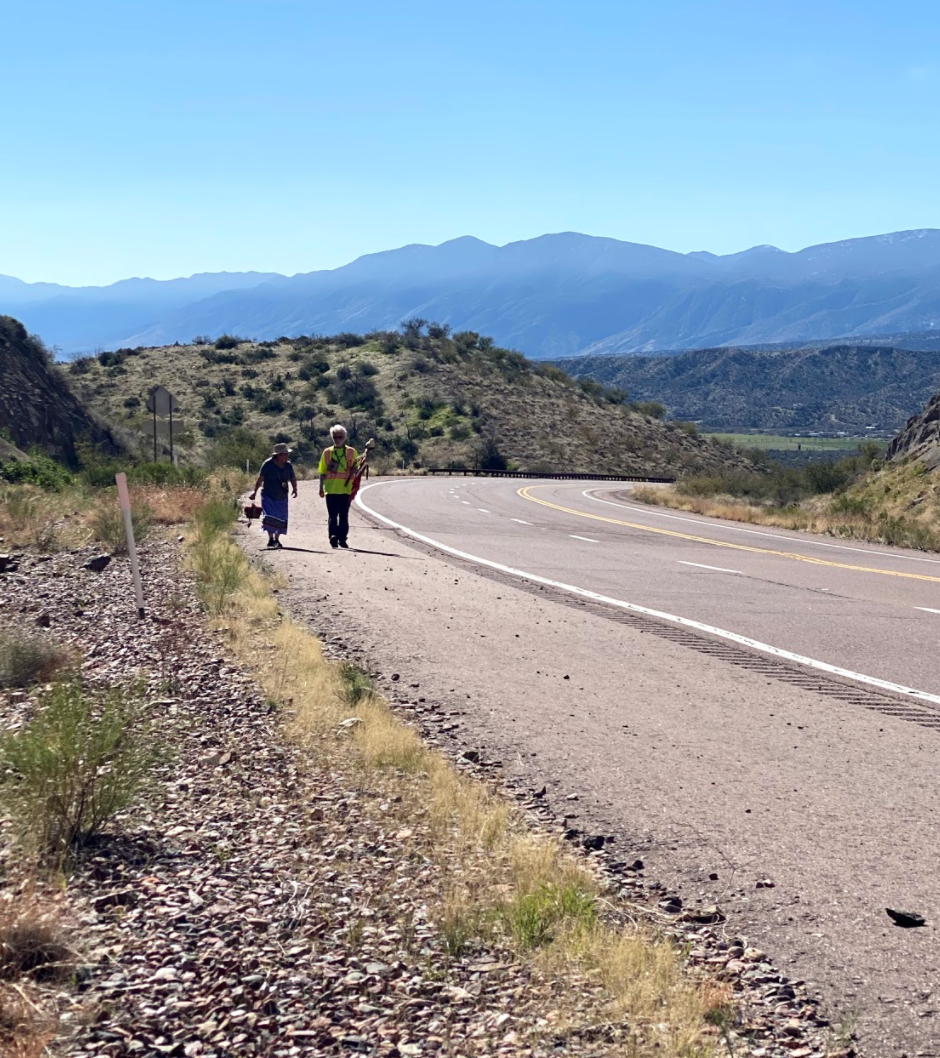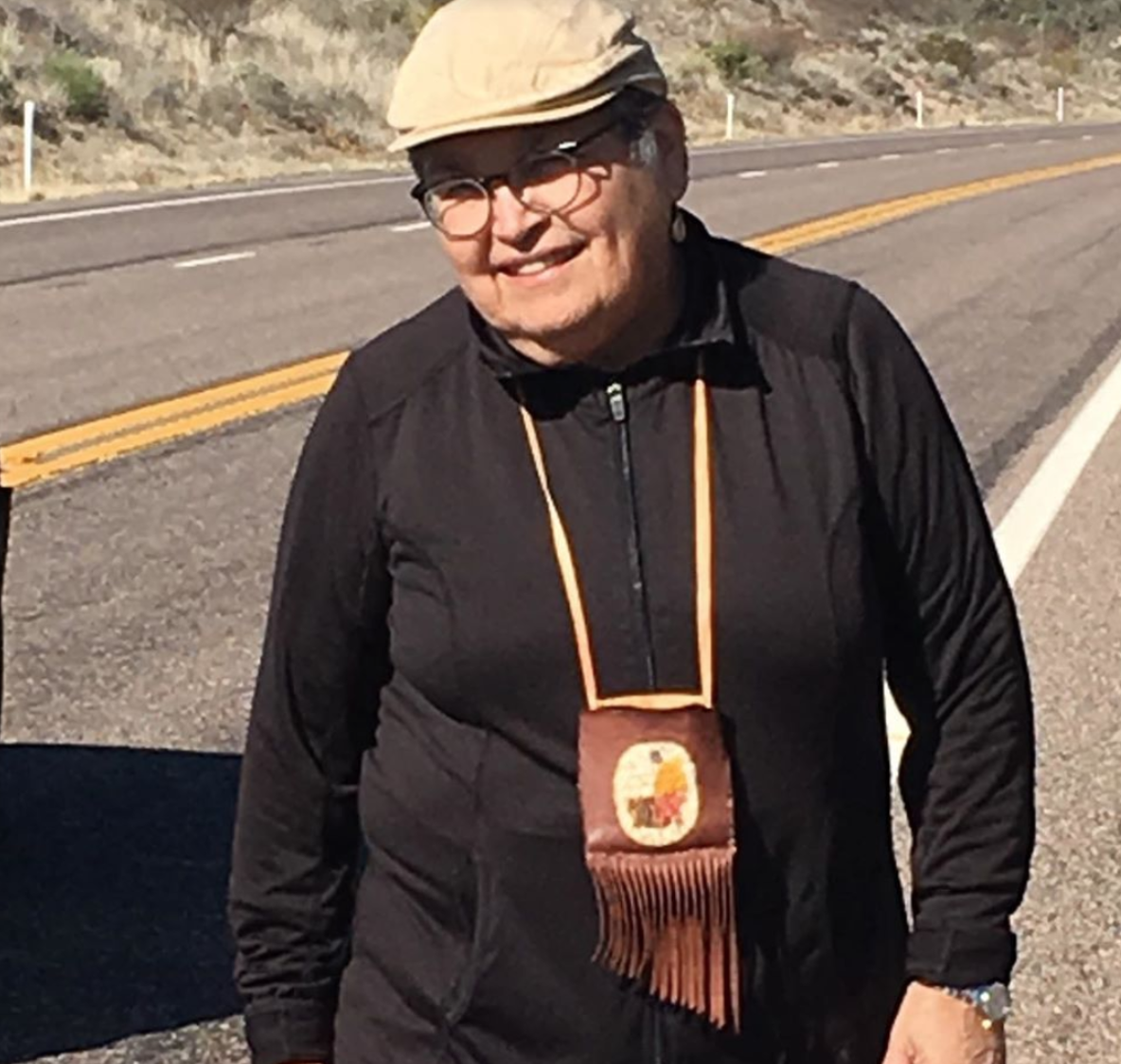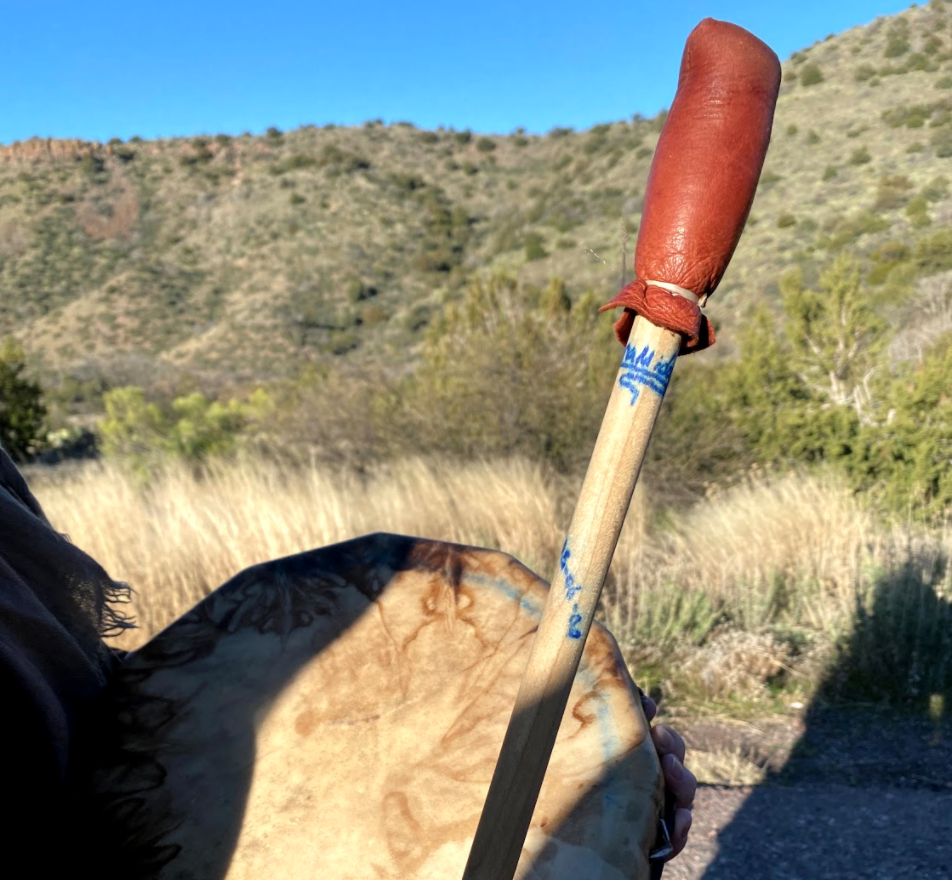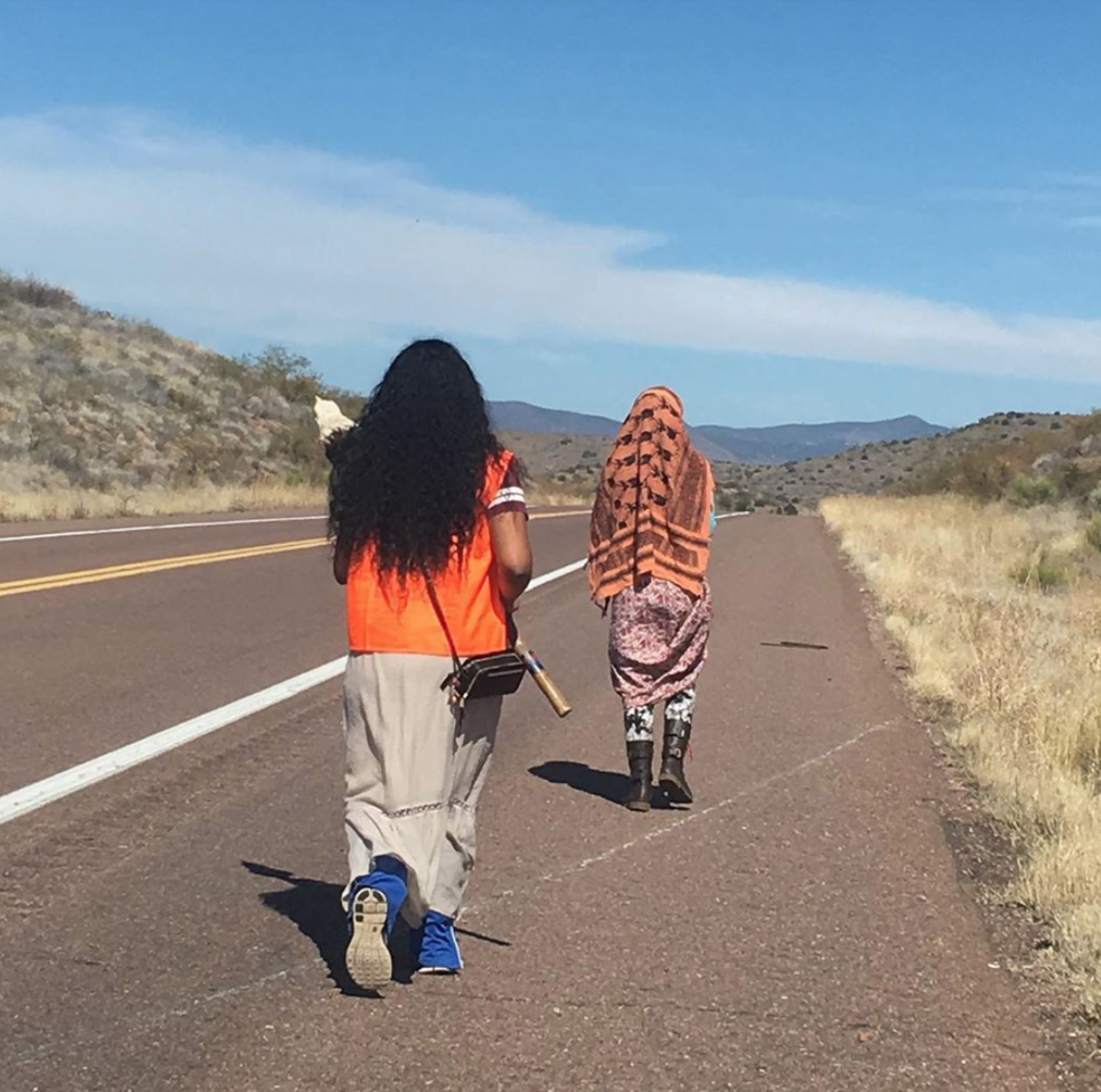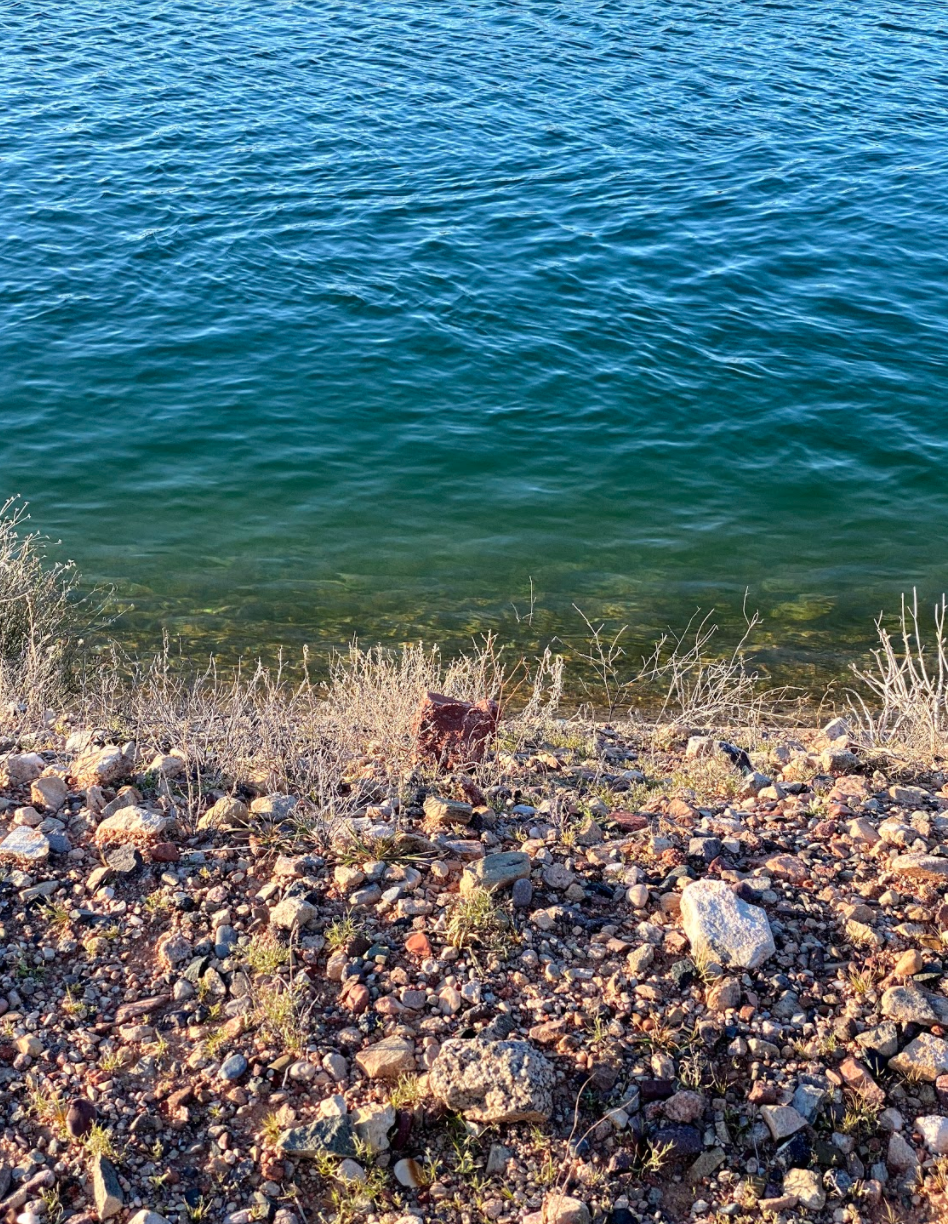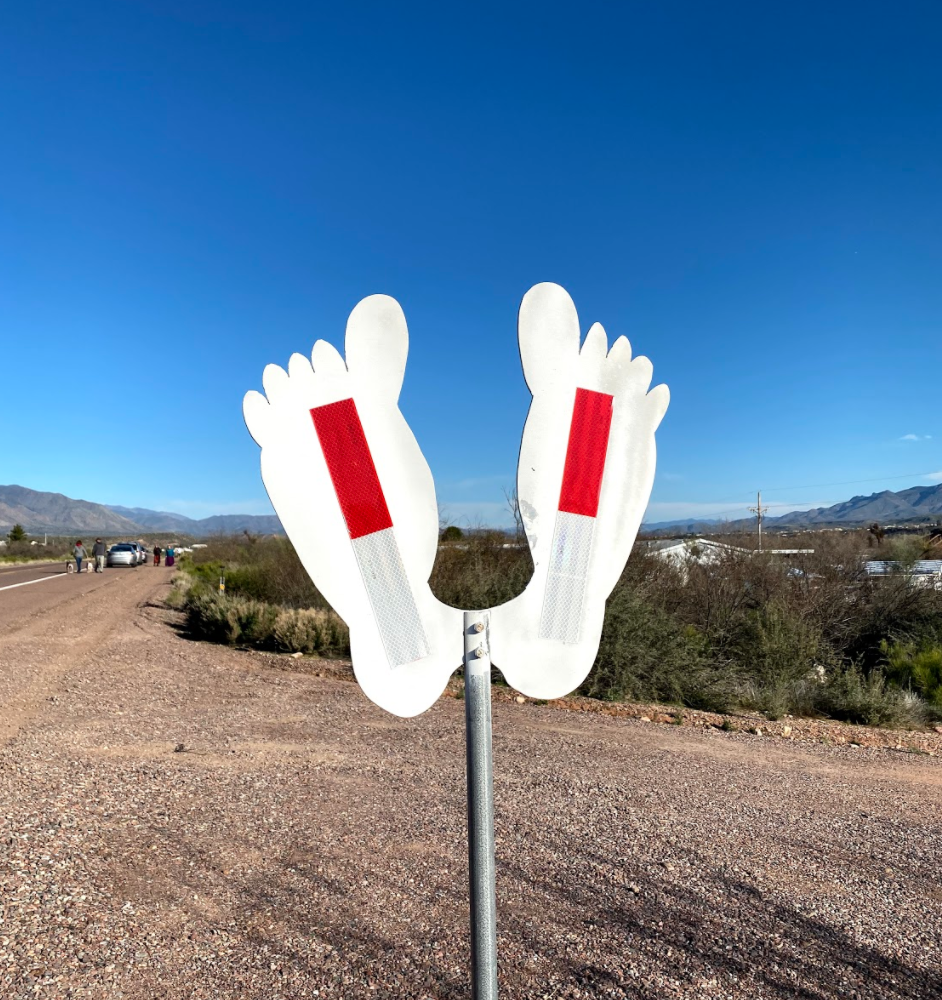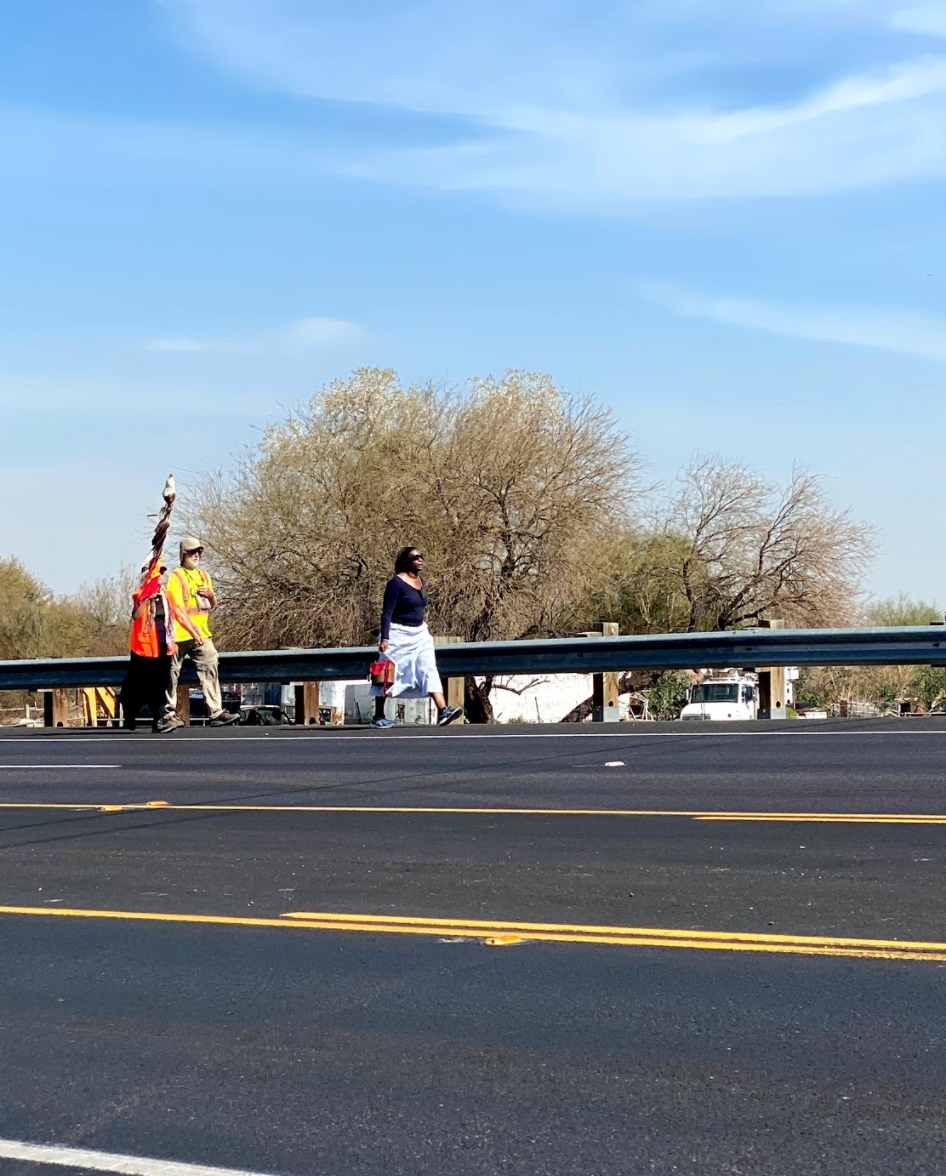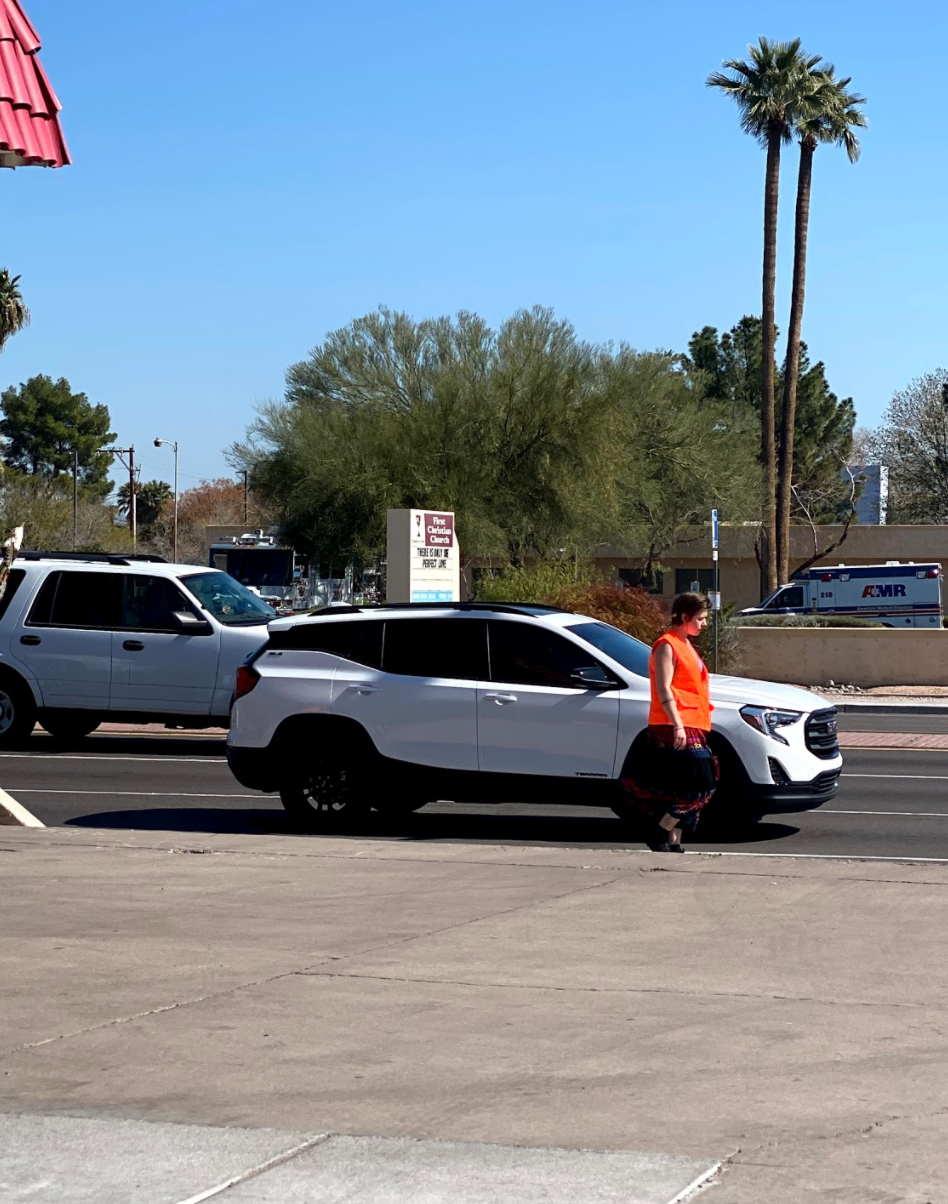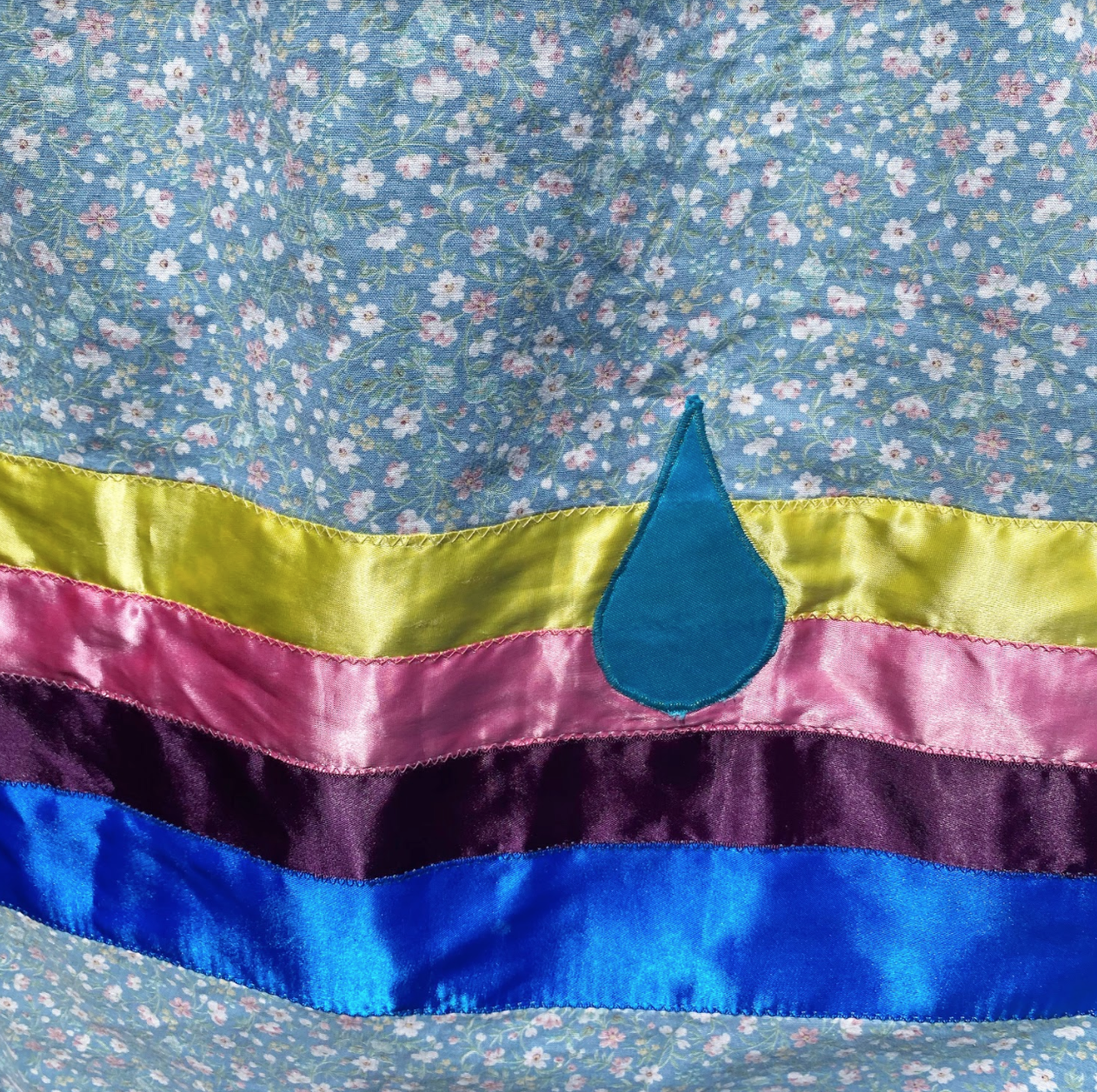Rio Salado Water Walk with Sharon Day (Ojibwe) and Nibi Walks
“The Nibi (Water) Walks are Indigenous-led, extended ceremonies to pray for the water. Every step is taken in prayer and gratitude for water, our life giving force.” -Nibi Walks
February 14-18, 2020
Place: Headwaters of Rio Salado (near Roosevelt Lake)
to mouth of river near Gila River.
Time: 8am - Sundown
Start Location: based on route of walk
Click here for walking route map
Click here to read Nibi Walk Protocol
Sharon Day (Ojibwe) walks the Rio Salado in Arizona beginning at the headwaters of the Rio Salado ending at the confluence of Gila River and Rio Salado. In ceremony a bucket of water is taken from the headwaters of the river (southeast of Roosevelt Lake) and carried by walkers to the mouth of Rio Salado (confluence of Gila and Salado.) The bucket of water is released at the confluence to remind the river of its original state.
Walk a partial day, full day, or multiple days. Learn how you can participate in this contemplative walk for the water from February 14-18, 2020. If you can’t join the walkers you can volunteer in many ways. We would greatly appreciate your efforts.
SHARON DAY TALK/MEET AND GREET
The Heard Museum (The Encanto Room)
Wednesday, February 12th from 3-5pm
2301 N Central Ave, Phoenix, AZ 85004
3-4pm: Sharon Day will talk about Nibi Walks
4-5pm: Sharon and MoW will go over details for walkers and volunteers. Questions can be answered and walkers / volunteers will have a chance to meet Sharon. We highly recommend ALL walkers and volunteers attend.
FAQ
How can I get involved?
CLICK HERE FOR WALKER SIGN UP
CLICK HERE FOR VOLUNTEER SIGN UP
Note: Sign up pages must be opened on a computer or laptop in order to edit the forms.
What are some volunteer tasks?
DRIVING - Each day we need two cars, one in front and one following behind walkers. (Imagine leap frog with cars). Drivers will be volunteering for half days (either morning to noon or noon to end of day). We currently need all driving positions filled. Please note that as people take turns carrying the water, walkers will have the option to go in and out of riding in the car if they want to take a break from walking.
FOOD - Provide healthy meals in the evening for walkers and volunteers. Can be as simple as a big pot of soup, lunch meats, fruit, trail mix, protein bars, cheese, cookies, etc.
WATER - Provide donations of water gallons for the walkers, only accepting donations of 2.5 gallon containers, NO SMALL PLASTIC BOTTLES.
DONATION DROP OFF: Heard Museum (Encanto Room) from 2pm - 5pm. This is for donations of water and food for walkers. If you have donations and this time doesn't work please contact Mia at mia@museumofwalking.org.
Do I have to walk the entire duration of the walk?
No, walkers have the option to walk as much as they desire. You can walk a partial day, full-day, or multiple days. If you wish to participate in walking we highly encourage you to read the Nibi Walk protocol here.
How much distance total will Sharon be walking each day?
Sharon is walking 25-30 miles a day. Participating walkers have the option to walk a partial day if desired.
What about transportation and accommodations?
All walkers are responsible for organizing their own transportation and/ or accommodations. Walkers may choose to stay in accommodations near Roosevelt Lake for the first two days of the walk. We highly encourage carpooling communication with fellow walkers. Emails and phone #'s will be on the walkers sign up list.
What will the walking trail/route be like?
The entire walk covers a range of environments: wild, rural, and urban. Walkers will experience trees, birds, rocks, vehicles, trucks, buildings as well as industrial farming and quite a few cows.
Will there bathrooms?
Click here to view our route map and view markers of where bathrooms will be located along our walk. We will explain protocol in the middle spaces.
How do I meet up with Nibi Walkers? How will I know where Nibi Walkers are located when I join the walk?
CLICK HERE TO SEE SHARON’S LIVE LOCATION
There is a live GPS feed of where Nibi Walkers are walking for the duration of the walk. This page automatically updates many times a day and is the best way to quickly find the walk while it is happening.
Will there be food and water? Do I need to bring anything with me?
We are providing water and one meal in the evening each day. Walkers should bring their own reusable water bottles as we will be providing water only from gallon water dispensers. Participants are responsible for bringing their own lunch or any other food/snack they may need. If you have special allergy restrictions we recommend bringing all your own meals/snacks. Participants can bring anything else they personally need for their walking duration. Participants will be responsible for carrying their own items.
If I have further questions who can I contact?
If you have any questions not answered above please contact us at info@museumofwalking.org
If you need to contact someone on the day you are walking you can contact Mia at 4806789097
Protocol for Nibi Walks (taken from Nibi Walk website)
“The Nibi Water Walks are based in Ojibwe Ceremonial Water Teachings. The reason we walk is to honor the rivers and all water and to speak to the water spirits so that there will be healthy rivers, lakes and oceans for our ancestors in the generations to come.
When we are walking for and with the water, we are in ceremony from the beginning of the day until we retire at day’s end. We try to move like the river, continuously all day long, every day until we reach our destination. We carry asemaa/tobacco with us to offer to any flowing streams or rivers we cross, also to honor any animals we may cross over along the roads or trails. When we walk, this is a time for prayer or songs for the water.
Women make the offerings for the water, sing the water songs and make the petitions for our water to be pure and clean and continuously flow down to us. Because we are in ceremony, women wear long skirts. We wear long skirts to show our respect for the grass, for mother earth and for ourselves. Women on their moon do not carry the water during this time, as they are already in ceremony.
Men carry the eagle feather staff, but if there are no males in attendance, then women can carry the staff and the copper vessel.
As a community of walkers, we carry the water in relay. Each woman carries the water for a little less than a mile and then passes the water to the next one. On average we might collectively carry the water 25-30 miles a day. Because this ceremony is about duration and following the water’s flow, the relay allows us to maintain our strength through a balance of rest and walking.
The Nibi Walk ceremony walks along the roads that follow the river most closely. Often we are on country highways. We may not visually see the river. Yet we are always carrying the river.”
Documentary film of Nibi Walk Rio Salado by Krista Davis and Jenny Zander
